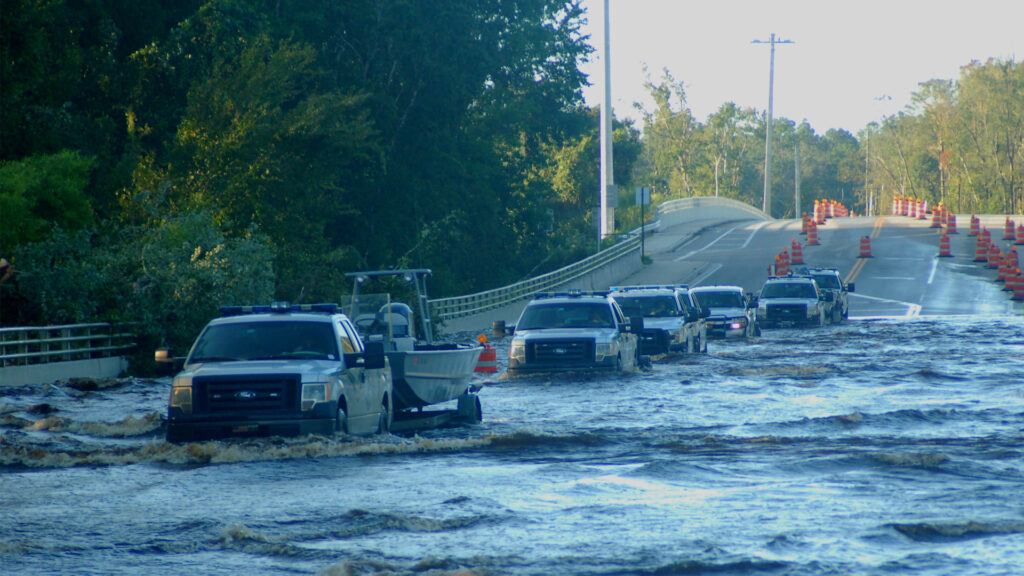By Chris Hildreth, Notes from the Third Rock
Great pains have been taken by both federal and Florida state governments to erase all mention of climate change in their respective jurisdictions. Both have scrubbed a plethora of words deemed unacceptable from a host of government literature, web sites and laws.
The federal government is slashing funds from the National Oceanic and Atmospheric Administration, the U.S. Environmental Protection Agency and other agencies that deal with climate change, reducing their staffs, halting a vast array of alternative energy projects and research initiatives, and again backing out of the Paris climate agreement. Florida has made it more difficult to pursue alternative energy projects, including forbidding municipalities from restricting the use of fossil fuels in favor of alternative energy
U.S. Rep. Aaron Bean, R-Fernandina Beach, in his report to his constituents published March 29, lauded his support for H.J. Res. 24 and 75 rolling back “unnecessary and harmful” regulations on American business that set “ludicrous” energy standards on appliances such as commercial refrigerators and freezers, leading to “higher costs for consumers.” Those regulations imposed by the Biden administration were to mandate more energy-efficient equipment, which would reduce carbon emissions with a knock-on effect of reducing a business’s energy costs.

Speaking of “higher costs for consumers” the city of Jacksonville has announced upcoming traffic detours in the San Marco area, particularly LaSalle Street, over the next several weeks while construction of a massive pump station continues into its next phase. When completed, they are hoping that it will alleviate the increasingly frequent flooding in the area. Rather than moving development from flood-prone areas, which themselves are increasing, this Sisyphean effort will ultimately cost consumers far more than the current remedy.
Fellow Jacksonville native Mayor Donna Deegan, in an appearance on WJCT’s “First Coast Connect” last September, noted that river levels “aren’t going down … they’re going up … that’s what we want to focus on as we go forward.” She noted area rivers have risen 3-6 inches since 2000 and show no indication it won’t continue.
The 800-pound gorilla in the room that no coastal politician would ever talk about is the fact that we have overdeveloped the waterfront, which has exposed large swathes of our city to catastrophic outcomes in the not-so-distant future. In the face of this she endorsed the planned pump station, which began under the Curry administration.
Jacksonville has a generous exposure to coastlines from the Atlantic Ocean and the St. Johns River and its many tributaries. Billions of development dollars line these waterfront areas with more coming all the time. In fact, Florida is one of top areas in the world that face increased vulnerability to sea level rise.
Last Oct. 29 in a forum at WJCT studios, a panel of resiliency officers from around Northeast Florida discussed what they have been involved in. I was able to submit a written question. I asked them that since some in the scientific community here in our state suggest that there could be 20 feet of sea level rise before the end of the century, would they be taking this into consideration in their planning?
The answer seemed to be no. They stated they used “probabilistic” forecasts, the same method used by those who set building codes in Jacksonville, which is why, unlike the rest of the state, they only expect a Category 3 hurricane. To say the least, prudence dictates planning for the worst-case scenario. Look no further than Hurricane Katrina to understand the effects of not planning for a worst-case scenario.

The Biden administration will be remembered for managing to produce the largest investment countering climate change in our history. It remains to be seen whether it will be allowed to be fully implemented. The present administration is doing everything it can think of to halt the implementation of this historic piece of legislation. They are serving different masters.
What is needed are hard decisions necessary to get development off the waterfront and out of harm’s way. An orderly retreat would be far less costly than having Mother Nature involved in the process
If just the Greenland ice sheet melted, sea levels would rise 23 feet. The more the powers that be ignore the crisis, the more likely this will happen. Climate scientists are concerned over the acceleration year over year about that melt. It is increasing exponentially, and they haven’t been able to quantify that other than to say they are alarmed.
It’s time for us to get busy. They will listen and act if enough people impress them with the urgency of the situation. Take a look at your brand-new baby grandchild. They will face the product of apathy as much as they will the product of action. It’s that simple.
Chris Hildreth lives in Jacksonville and writes a Substack newsletter called Notes from the Third Rock (childreth.substack.com), where this piece first appeared. Banner photo: Coast Guard teams conduct rescue operations in Jacksonville in 2017 following Hurricane Irma. (U.S. Department of Homeland Security photo via Wikimedia Commons).
Sign up for The Invading Sea newsletter by visiting here. To support The Invading Sea, click here to make a donation. If you are interested in submitting an opinion piece to The Invading Sea, email Editor Nathan Crabbe at nc*****@*au.edu.



